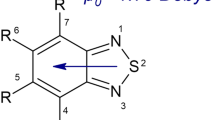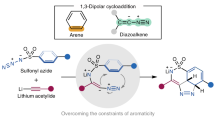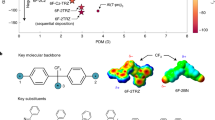Abstract
SINCE ionization constants and dipole moments are both measures of polarity, it is logical to suppose that a connexion will exist between them. Interesting results have followed an examination of the elementary possibility that the difference between the strengths of substituted and unsubstituted acids in the benzoic and phenylacetic series, and the dipole moments of monosubstituted benzenes (virtually the substituent groups), are simply related. The ionization constant values (Ktherm) were all derived in this Department and the dipole moments were those employed by Dippy and Watson1 in connexion with the log arithmic relationship observed previously. These sets of data possess the advantage of being comparable.
This is a preview of subscription content, access via your institution
Access options
Subscribe to this journal
Receive 51 print issues and online access
$199.00 per year
only $3.90 per issue
Buy this article
- Purchase on SpringerLink
- Instant access to full article PDF
Prices may be subject to local taxes which are calculated during checkout
Similar content being viewed by others
References
J. Chem. Soc., 436 (1936).
Author information
Authors and Affiliations
Rights and permissions
About this article
Cite this article
DIPPY, J. Correlation of Ionisation Constants of Organic Acids with Dipole Moments. Nature 139, 591 (1937). https://doi.org/10.1038/139591b0
Issue date:
DOI: https://doi.org/10.1038/139591b0



